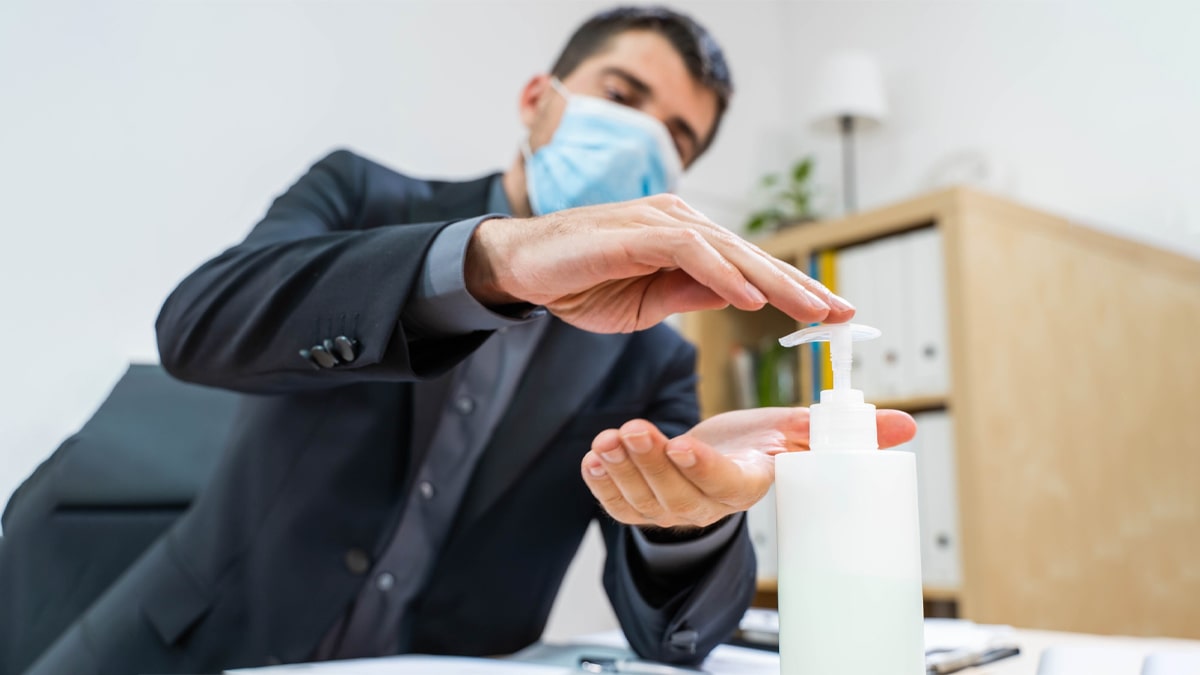In the contemporary professional landscape, marked by the paramount importance of first impressions and intricate interpersonal dynamics, the concept of workplace hygiene emerges as a central tenet in fostering an environment that is both robust and respectful.
As individuals traverse bustling office corridors, engage in boardroom discussions, and collaborate within shared workspaces, the significance of maintaining an elevated standard of workplace hygiene becomes strikingly evident.
Consider the scenario: a bustling morning in the office, teeming with potential for productivity, suddenly dampened by the encounter with a colleague whose neglect of personal grooming or hygiene is palpable.
The encounter, though discreet, has the potential to reverberate unsettlingly through one’s focus, concentration, and overall perception of the workplace.
This very scenario underscores the pivotal role that workplace hygiene plays in shaping the dynamics of the professional sphere.
This article sheds light on Workplace Hygiene, the importance of hygiene at the workplace, a checklist that you should have in check to take care of hygiene, etc.
What Is Personal Hygiene at the Workplace?
Personal hygiene at the workplace is a collection of habits and routines geared toward maintaining cleanliness, grooming, and overall appearance within a professional environment.
It involves practices that promote physical well-being, create a positive image, and contribute to a respectful workspace for both oneself and colleagues. It is a basic Business Etiquette that is expected of every employee of a company.
Key aspects of workplace personal hygiene include regular body cleanliness through bathing and using hygiene products like soap and shampoo. Oral hygiene, such as brushing and flossing regularly, is essential for maintaining fresh breath and good dental health.
Wearing clean and well-kept attire, along with attention to detail like neatly trimmed nails and polished shoes, communicates professionalism.
Practicing personal hygiene at the workplace reflects self-respect and consideration for others, fostering a positive and productive atmosphere.
Importance Of Personal Hygiene at Work
The significance of maintaining personal hygiene at work cannot be overstated, as it encompasses not only an individual’s well-being but also profoundly influences the overall professional atmosphere and interactions.
Here are several compelling reasons highlighting the importance of personal hygiene in the workplace:
Professional Image:
Personal hygiene directly contributes to an individual’s professional image. A well-groomed and clean appearance demonstrates attention to detail, self-care, and a commitment to presenting oneself in the best possible light. This positive image can bolster one’s credibility, confidence, and overall reputation among colleagues and superiors.
Health and Well-being:
Proper personal hygiene practices, such as regular handwashing and maintaining cleanliness, play a crucial role in preventing the spread of germs and illnesses. A healthier workforce translates to fewer sick days and increased productivity, benefiting both the individual and the organization.
Respectful Environment:
Practicing good personal hygiene is a way of showing respect for oneself and others. Colleagues and clients are more likely to feel comfortable and valued in an environment where personal cleanliness is upheld. Conversely, neglecting personal hygiene can lead to discomfort and hinder effective collaboration.
Enhanced Interactions:
Maintaining personal hygiene ensures that one is approachable and conducive to positive interactions. Cleanliness and proper grooming eliminate potential distractions that could hinder communication. This is especially important in roles that involve close interpersonal interactions or client-facing responsibilities.
Morale Boost:
A workspace where personal hygiene is valued tends to have higher employee morale. When individuals feel that their well-being and comfort are considered, it fosters a sense of belonging and a positive workplace culture.
Confidence and Self-esteem:
Good personal hygiene contributes to an individual’s sense of confidence and self-esteem. When one feels clean and well-groomed, it can lead to greater self-assurance and the ability to tackle challenges with a positive attitude.
Positive Leadership Example:
Individuals who prioritize personal hygiene set a positive example for their colleagues. This can encourage a ripple effect, where others also strive to maintain their hygiene, contributing to an overall improved workplace environment.
Reduced Stigma:
An environment that encourages and educates about personal hygiene reduces the stigma associated with addressing the topic. Open discussions and awareness can help individuals overcome challenges related to personal hygiene, leading to a more inclusive workplace.
How Do You Maintain Hygiene in The Workplace?
Maintaining hygiene in the workplace involves a combination of personal care, cleanliness practices, and consideration for the shared environment. Here’s how you can ensure hygiene in different aspects of the workplace:
Clothing & Shoes:
- Wear clean and well-maintained attire to work.
- Avoid clothes with strong odors or stains.
- Choose comfortable and appropriate footwear that is also clean and in good condition.
- Regularly launder clothes and wash shoes as needed.
Body and Oral Odor:
- Shower daily using soap and shampoo.
- Use deodorant or antiperspirant to prevent body odor.
- Maintain good oral hygiene by brushing and flossing regularly.
- Consider keeping breath mints or gum for quick refreshment.
Hair, Beard, Nails, and Others:
- Keep hair clean, groomed, and styled appropriately.
- Trim and maintain facial hair, such as beards and mustaches.
- Ensure nails are clean, neatly trimmed, and free from dirt.
- Avoid wearing excessive jewelry that could harbor germs or interfere with hygiene routines.
Maintaining Desk:
- Regularly clean and disinfect your workspace, including your desk, keyboard, mouse, and phone.
- Keep personal items organized to minimize clutter.
- Dispose of food waste properly to prevent attracting pests.
Clean Hands:
- Wash hands thoroughly with soap and water after using the restroom, before eating, and after coughing or sneezing.
- Use hand sanitizer if soap and water are not readily available.
- Avoid touching your face, especially your eyes, nose, and mouth, to reduce the risk of transferring germs.
Shared Spaces:
- Clean up after using common areas such as the kitchen, conference rooms, and break rooms.
- Dispose of trash in designated bins and recycle whenever possible.
- Encourage coworkers to follow hygiene practices and contribute to maintaining a clean workspace.
Illness Prevention:
- Stay home if you’re feeling unwell to prevent the spread of germs to colleagues.
- Cover your mouth and nose with a tissue or your elbow when coughing or sneezing.
- Keep tissues and hand sanitizers at your desk for easy access.
Personal Care Supplies:
- Keep personal care items such as tissues, hand sanitizer, and cleaning wipes at your desk.
- Carry a spare set of clothing, especially if your workplace is prone to spills or accidents.
Conclusion
In today’s corporate world, workplace hygiene is really important, it can make or break your professional career.
Workplace hygiene is not just about being clean, It’s also about being polite and respectful to others. When we keep our work areas neat and clean, it helps us work better.
When we’re clean and take care of ourselves, it shows that we care about our jobs and the people we work with.
Keeping a clean and tidy workspace has lots of good effects.
First, it helps people get a good impression of us and our workplace.
Second, it keeps us healthy by stopping germs from spreading. When we’re healthy, we can work more and take fewer sick days.
Third, a clean space helps us feel happier and better about our jobs. When we work in a place that looks good, we’re more likely to like our jobs.
If you want to learn more about workplace hygiene, Skills Ally has a course that can help. This course teaches you all about how to keep your workplace clean and nice.
By learning about workplace hygiene, you’ll be ready to do better at your job and make your workplace a nicer place for everyone.

Ramanjeet Kaur is a Life Skills and Behavioural Trainer. Her journey to becoming an entrepreneur and starting her career as a trainer in the education industry is an inspiring revelation. She was always passionate about teaching profession from her childhood and started mentoring young kids to develop their personalities.

